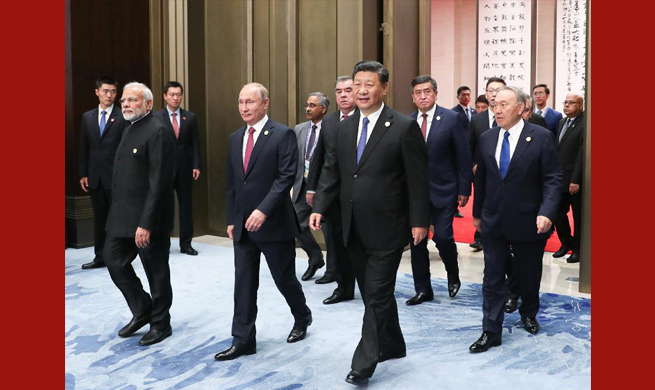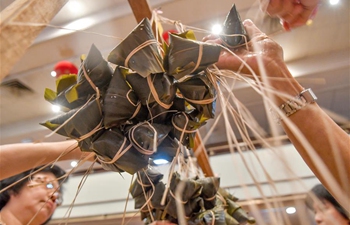CHICAGO, June 10 (Xinhua) -- A unique bacterial strain isolated from a patient with pelvic pain may represent a promising path to treating prostate cancer with immunotherapy, a study of the Northwestern University (NU) found.
The study has been newly published in Nature Communications.
NU researchers found that a bacteria isolated from a patient with benign prostate pain was attracted to the prostate, homing in on the organ like a missile and causing minor inflammation and pain for about a month. They named the bacteria CP1.
They then transferred CP1 into a variety of mice models, and found that it trafficked directly to the prostate again and again.
In a series of experiments, the researchers found a combination of CP1 and an immune checkpoint inhibitor therapy called PD-1 more than doubled the median overall survival of mice models with prostate cancer, largely credited to beneficial increases in several measures of immune activity.
While increasing the effectiveness of immune therapy by generating immune activity is not a new idea, it's rare to find a single molecule or compound that will increase activity in a variety of measures, said Jonathan Anker, a sixth-year student in the Medical Scientist Training Program (MSTP) at NU and lead author of the study.
"We think this sets the blueprint for how you could screen bacteria isolated from other tissues, and find a CP1-like bacteria that might work," Anker said.
Moreover, the findings demonstrate how tissue-specific microbes might help boost immune therapies across the board, not just in prostate cancer.

















